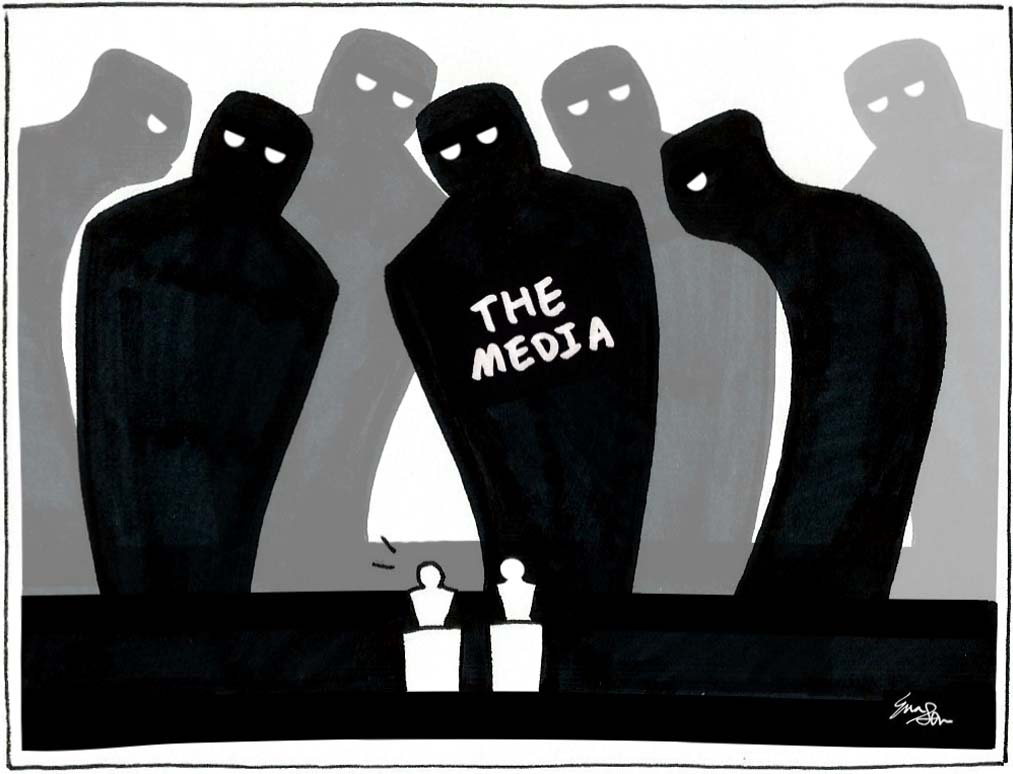A brief moment of temporal strangeness occurred for me sometime last week, as I was bizarrely made aware of a recent Ralph Nader interview that was gaining some digital traction.
Nader exists in a unique intellectual space for me, and I assume more broadly for people of similar ages and outlooks. On the one hand, he will forever be defined for me primarily by his self-aware failures running for president and the alleged impact he had on the 2000 election, with many suggesting he “stole” votes from Al Gore and eased George W. Bush’s path to commander in chief. By the same token, though, he was undoubtedly my (and I would bet many others’) serious introduction to so-called radical politics. It seems a bit antiquated now in this recent age of Bernie-optimism, but the Green Party should not be ignored in its efforts to repopularize socialist-influenced platforms for the 21st century.
And yet, I was perfectly happy to ignore them, Nader included. Once again, Green Party style sloganeering seemed outdated to me in a 2016 that saw at least quasi-socialist politics entering into the system rather than chucking stones at it from a distance. I quite happily dedicated no thought to its legacy in American society and especially none to its present existence.
Nader’s interview made me rethink that. Talking to Travis Smiley on PBS, he speaks with cautious delight about Sanders’ candidacy, but quickly shifts to what he sees as an unsatisfying election season that still permits candidates to escape voter pressures and “narrow the agenda.” This, Nader said, is a failure of the private sector media, the “commercial corporations” that decide the format of the debates and have a vested interest in attracting as many viewers as possible, often with spectacle and aggression.
Typically, I’m exhausted and exasperated by public figures, politicians most of all, discussing the failings of the media. Not that there aren’t frequently legitimate critiques being made; popular media is regularly racist, sexist, homophobic and classist, and the more work being done to expose these structural biases, the better. But too often media badmouthing easily falls into reductive lifestyle politics and straw man tactics. It should be noted too, that the party most nominally connected to the philosophy of a free market being dictated by popular opinion of what’s good and bad, therefore justifying it, is the one most ready to use the overwhelmingly for-profit media as a symbol for corruption and unfairness. Politicians get to complain about their positions being misstated by an ill-defined yet clearly antagonistic force, while at the same time using and abusing that force to cry foul and curry martyrdom. In other words, they are seeking out “media” (a near meaningless term when used in this way) disapproval as a method of constructing false underdog or outsider narratives: making absolutely sure potential voters know that the big bad media is against or has already written off their candidate of choice — and therefore the voters — regardless of the veracity of said bias. All of that being said, Nader’s critiques rang true for me. It is tempting to write him off as one of history’s bitter also-rans, a paragon for the previous decade’s frustratingly ineffective and begrudging leftist organizing, still using any opportunity he has to take potshots at the media companies that ignored him then and ignore him now.
If that is true — which is very possible — it would only be a fraction of the story because Nader is right, and even Sanders is complicit. The senator’s constant speechifying on the nefarious role of money in politics is noble and almost definitely points to a truth, yet he fails to vocally confront a far more ingrained and assumed capitalist influence. It should most certainly not be the role of private, commercial interests — which is what Fox, CNN and NBC are by definition — to establish and legitimize candidates in debates and coverage they control.
It is nearly agonizing to listen to someone like Rand Paul moan about being left out of the main event, as he was with the Jan. 14 Fox Business Republican debate, and there was unarguably a version of the grandstanding us-against-them mentality in his loud reaction to it (again: the irony of a devout Libertarian whining about the practices of a corporation seeking the most viewers and money as possible should be lost on no one). Even as I find myself mostly repulsed by his worldview and terminally unexcited by his (former) candidacy, I think it is important and ominous that he finished better in the Iowa Caucus then all three of the “establishment” candidates selected instead of him: Jeb Bush, John Kasich and Chris Christie. It’s not an unfrightening thought that establishments with no responsibility to public welfare are in control of perhaps the broadest format of voter access.
If we’re going to seriously discuss what’s wrong with American politics in the new millennium — and I still seriously hope Bernie Sanders is a signal that we might — then we need to remember Nader. Sometimes moneyed interest is less obvious than campaign donations.
Ely Vance is a senior English major. He can be reached at evancedbk@gmail.com.



